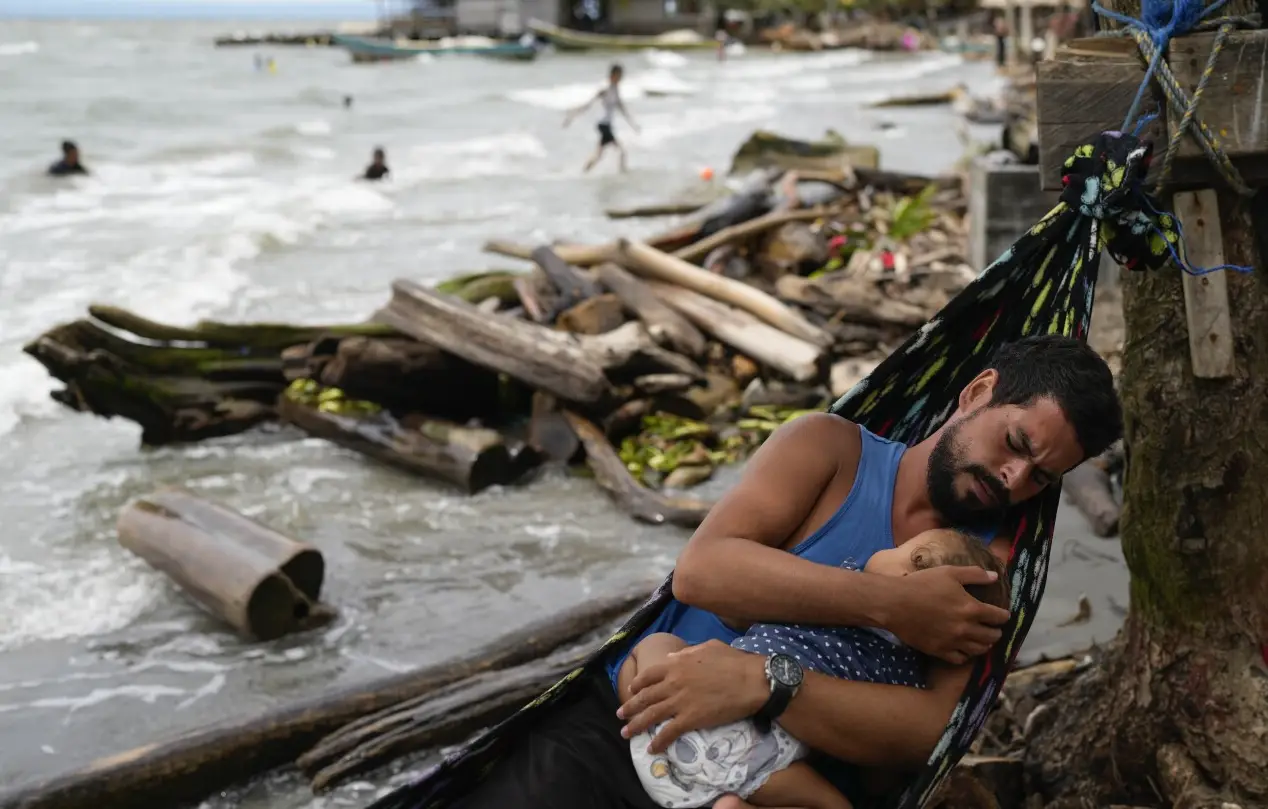The drive for human development in Latin America and the Caribbean is facing a formidable challenge. After decades of progress in health, education, and poverty reduction, the region is confronting a troubling paradox: while the achievements have been significant, they are also fragile and unequal—and are now threatened by a combination of structural problems, uncertainty, and multiple overlapping crises that feed into each other and multiply their effects. In this context, clinging to past formulas is no longer an option. Development must be rethought, with resilience as both its compass and its destination.
For a long time, the development model in Latin America and the Caribbean followed an upward trajectory: escaping poverty through economic growth would lead to the emergence of a stable middle class. But reality has not been linear. Today, 31% of the region’s population lives in a gray zone of socioeconomic vulnerability: they are not officially poor, but neither are they protected. One crisis—be it health-related, climatic, or political—is enough to push them back. In other words, in Latin America and the Caribbean, escaping poverty has been possible for many, but so has, frequently, falling back into it.
More than half the population lacks adequate mechanisms to withstand even a moderate adverse event without seeing their well-being harmed and their future compromised. In a context where uncertainty is growing and crises are increasingly frequent, intense, and interconnected, a portion of the population lives in a state of insecurity or alarm that is incompatible with freedom.
Resilience, by contrast—understood as the capacity to prevent, endure, and recover from crises without sacrificing freedom or dignity—is a prerequisite for hope, as it expands people’s agency. That is, their ability to take action and pursue life goals they value. It is, therefore, an essential component of human development.
An uncertain present, a future yet to be written
The numbers speak volumes. The growth of the Human Development Index (HDI) dropped from an annual 0.7% between 1990 and 2015 to just 0.2% since the pandemic. Uncertainty, as measured by global indicators, has doubled in the region in just the past year—well above the world average. And threats are no longer isolated: they overlap, interact, and reinforce one another. From the climate emergency to cyberattacks, to social fragmentation and organized crime, Latin America and the Caribbean is facing systemic threats that exceed any traditional public policy playbook.
This age of uncertainty demands a paradigm shift. Resilience must stop being merely a desirable outcome and become the guiding principle of development.
Three forces in tension, one common challenge
We identify three major forces straining development: the rapid evolution of emerging technologies, social fragmentation, and the intensification of climate disasters. While distinct, they share a common trait: they reinforce one another. Digital transformation, for example, has expanded access to information and services but has also deepened inequalities, made employment more precarious through platform-based work lacking social protections, and weakened social cohesion through disinformation and political polarization.
Latin America and the Caribbean is the region with the highest social media consumption in the world: more than three and a half hours a day on average. This digital overexposure carries psychosocial costs—anxiety, depression, isolation—especially among young people. Moreover, in contexts of low digital literacy, fake news spreads easily, undermining trust in institutions and democratic debate.
The second major source of pressure is social fragmentation. Distrust is rising—towards institutions and among citizens themselves. “The others”—those who think differently, those in power, those outside one’s immediate circle—are increasingly viewed with suspicion. As trust in governments erodes, closer bonds—family, friends, local communities—become the main safety net. But when selective trust coexists with generalized distrust, the ground is fertile for antagonism between social groups and, consequently, growing difficulty in solving shared problems. The rise of organized crime in the region is, to a large extent, also fueled by these fractures.
The third threat, perhaps the most visible, is the climate crisis. The region is living through the five hottest years in its history, has tripled the frequency of extreme weather events since 1960, and is suffering massive productivity losses due to heat-related labor impacts. Between 2002 and 2023, wildfires burned nearly 400 million hectares—an area equivalent to Argentina and Chile combined. Most alarming: the countries with the lowest HDI are also the most vulnerable to climate impacts; even the better-positioned countries, while more adaptable, remain significantly exposed.
Recalibrating the future of development
What can be done in the face of this triple pressure? The proposed solution centers on a framework built on three pillars: tools to manage uncertainty, institutions that embrace complexity, and infrastructures that unlock community potential. This triad—tools, institutions, infrastructures—forms a new “resilience pact.”
In practical terms, this means: expanding social protection systems beyond those officially classified as poor; ensuring sustained state presence throughout the entire territory; and investing in infrastructures—digital, physical, and ecological—not only to withstand crises but to foster inclusion and equity.
Recalibrating development in Latin America also demands political commitment to move beyond simplistic formulas and embrace the complexity of the moment. The region needs agile institutions capable of anticipating risks and coordinating cross-sector responses. It must boldly invest in human capital—especially digital and climate-related skills—and, above all, renew its development narrative: human development without resilience is no longer viable.
Resilience as possibility
Resilience is not resistance; it is not about enduring hardship. It is about possibility. It is not about shielding ourselves from all risks, but about ensuring that, when crises come—and they will—we have the collective capacity to adapt and rebuild without backsliding on rights or freedoms. In a world of interconnected shocks, development cannot be limited to planning how to grow the economy and redistribute it; it must also be about protecting progress and avoiding regress. This is about people’s ability to make decisions about their lives—even—and especially—in difficult times.
The challenge is clear. Latin America and the Caribbean is under pressure. But it also stands before an opportunity: to recalibrate the course of development with resilience as its springboard. Because without it, every gain is reversible. With it, even the hardest blows can become opportunities to rebound and keep moving forward.
This article presents a preview of the 2025 Regional Human Development Report, titled “Under Pressure: Recalibrating the Future of Development,” produced by the United Nations Development Programme (UNDP) in Latin America and the Caribbean.
*Machine translation proofread by Janaína da Silva.














